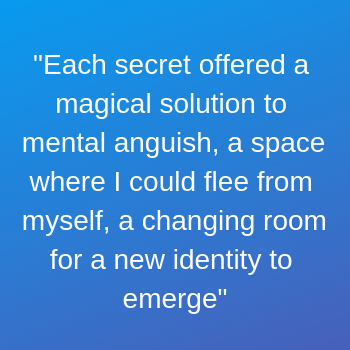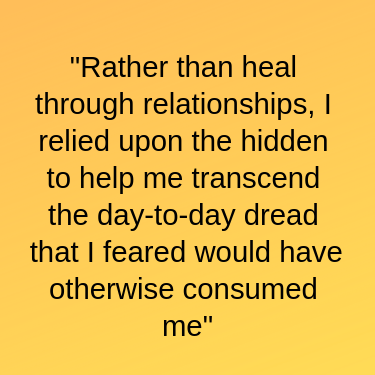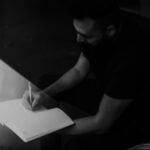“Why can’t you just tell the truth?”
Over the course of my twenty-plus years as a psychologist specializing in men’s issues and couples counseling, I’ve heard that very question (or variations of it) from many a betrayed, wounded partner. And the answer, from the half of the couple who has been routinely lying, often isn’t all that simple.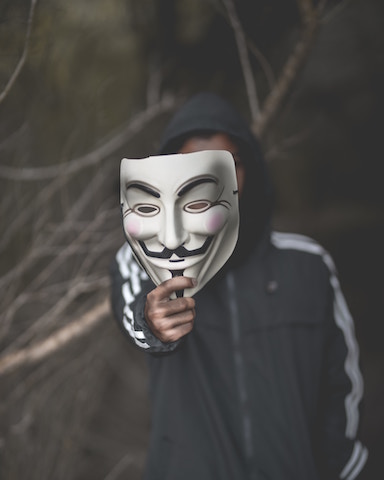
A large percentage of the problems that lead people to seek my help involves keeping secrets (i.e., infidelity, addictions, destructive secret behaviors). While chronic secrecy is toxic to a relationship, some people learn to keep secrets because secret-keeping has served an important function in their psychological lives, usually as children. From there, it’s easy for secrets to become habitual and therefore incredibly hard to let go of.
What follows is written by me, but it is informed by my years of working with people who have acknowledged the damage their secrecy has wrought on their relationships and their lives at large, people who are in the process of trying to chart the course for a different future. In a real sense, it’s a composite of many men I’ve had the privilege of working with over the past two decades.
A life built on secrecy
I built my life around deception. My life became an emotional shell-game; hiding behind my secrets, I used to pray that no one, especially my loved ones, would find the real me. At some point I couldn’t tell the difference between truth and fiction. I felt like I was becoming twisted by my own lies.
It’s easy to judge someone who has built his life on a foundation of secrets. And I realize this judgement is deserved. I’ve betrayed my wife. And my relationship with my son has probably suffered in ways I do not comprehend. So in no way am I glorifying the secrets I’ve kept and the lies I’ve told. Living this way has caused significant pain to myself and others and I wish I could rewrite the past to undo all that pain.
I would imagine that for most, telling the truth comes naturally. It may not even occur to you to do otherwise. But to me, it is completely unnatural. For you, honesty may lead to a sense of freedom and closeness with others. For me, exposing myself to others via truth felt like peeling my skin off, something to be avoided at all costs.
My secrets, my friends
My secrets became my trusted friends. They belonged to me and no one else. They gave me something no one else could … at least that’s what I told myself.
Each secret offered a magical solution to mental anguish, a space where I could flee from myself, a changing room for a new identity to emerge; some secrets seduced me with the promise of blissful numbness; others offered aliveness, an emotional jolt that quickly pulled me from the doldrums and emptiness that shadowed me.
I hated myself for as long as I could remember. My life of deception gave me one more reason for this self-loathing. Self-hatred isn’t always apparent to those who suffer from it. It often lies dormant, the wizard behind the curtain muting and darkening experiences that by most accounts should be satisfying.
Hidden hatred of this kind becomes a central organizer of experience, overriding the need for loving relationships. It’s not that the need for others ceased to exist for me. I didn’t want to be alone and at the same time, I couldn’t be with others. I couldn’t let them in. What felt like the deepest truth within me was completely inhospitable for loving connection.
My self-hatred drove me from others and from love. Its aim, I see now, was to destroy and betray, especially the part of me that still yearned for love. The fact that I continued to act out gave self-hatred a powerful voice louder than any other within me. (“Look at what you just did, you monster.”)
Yes, a life of secrecy fractured me and, yes, deception walled me off from those I loved most. In the light of day I would get fleeting moments of clarity and see this painful truth. In these moments I would be horrified by what I was doing.
But, no matter the pain they caused… who would I be without my secrets? I convinced myself I was nothing without them.
The seeds of deception
I discovered secrecy early in life. When you grow up in a family where avoidance is the main coping strategy, you become sensitive to the presence of what isn’t spoken. The un-dealt-with traumas of my parents sat uncomfortably in the spaces between all of us growing up.
What wasn’t talked about shaped me as profoundly as what was said. Perhaps more, even.
It’s common for kids to lie, in all families. The child who doesn’t want to displease; the sensitive kid who learns to withhold rather than face the consequences. For some, parental disapproval is the thing of nightmares.
Fear is often the driving force, at least initially, for the secrets and lies that occur in childhood. Although I didn’t know it when I was a kid, I now understand that as children we become highly attuned to the rules of the approval/disapproval game. We learn to create versions of ourselves based on these findings — we discover an OK-ness-of-being based upon the reactions of those who matter most to us.
The lucky learn early on that relationships are safe harbors, a vital conduit to getting one’s needs met, the discovery of oneself through the other. The need to vanish behind walls of secrecy may be minimal for those who become confident that turning toward another brings emotional sustenance. For the lucky, self-vitality is found within relationships; for the unlucky, retreat seems like the most viable option.
There are dangers children face from both within and outside the family. For the abused and/or neglected child, psychological retreat is an adaptive response. The creation of an inner fantasy world has helped many survivors of childhood sexual and physical abuse bear the unbearable.
The conditions of childhood, at least for me, paved the way for an over-reliance on secrecy in adulthood.
Childhood abuse, the masks I wore and my reliance on secrets
I began keeping secrets in earnest after being sexually abused at the age of eight by a family member. For me, keeping the abuse hidden was a no-brainer, especially in a family that was phobic of any emotional discomfort. Children are intuitive this way, even if they do not have words to articulate their understanding of things. I must have known at some level that my parents, especially my mother, needed protecting from what was happening to me.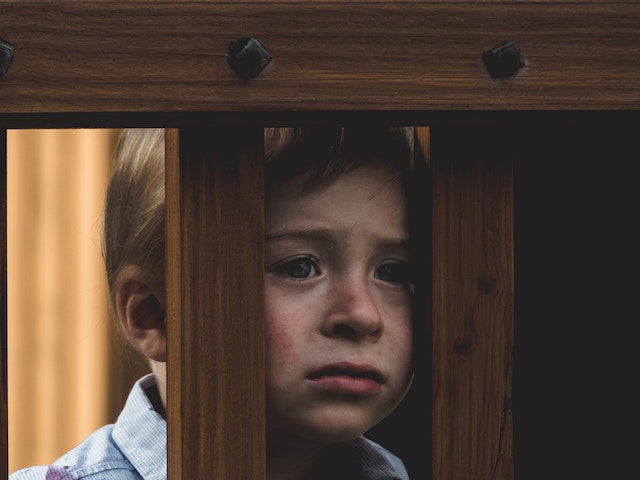
Anyone who has been sexually abused knows about the pressure (real or imagined) to keep silent. There were several ingredients that made up my silence. I was imprisoned by self-blame and motivated to spare others the vicarious trauma of knowing. I feared I wouldn’t be believed, but even if I was, nothing would ever be the same once the horrors were essentially handed over to others. And once named, it would become more difficult to deny what had happened, a denial that was kept alive by the secrets that replaced relationships.
I imagine I looked like a well adjusted but unremarkable kid (quiet, not too smart, mediocre in sports, a handful of friends; in my late teens I started dating, I had my heart broken, I probably broke someone’s heart through my immaturity). I was more numb than in pain. I learned to wear psychological masks as I navigated through life.
And that outward facade continues today. You’d never know that I was a victim of childhood sexual abuse or that I created a secretive life involving sexual acting-out. I am married, I have a family, a successful career, I have hobbies, we go on family vacations, we are part of a spiritual community…
I spent my entire life shaping myself around the volcanic ash that the abuse left inside me. While it’s impossible to know all the ways in which I was impacted by the abuse and the resulting secrecy that dominated my life, here is what does feel clear to me:
My capacity for self-reflection, the ability to observe my inner world, became nonexistent. If you were to ask me on any given occasion what I was thinking or feeling, I wouldn’t know. More importantly, I never asked myself this question. It was like someone hit the mute button on my capacity to think, to be truly curious, to wonder about myself.
Some trauma survivors feel too intensely; they’ve lost the inner anchor that prevents emotion from sweeping them away. For some reason, my self-experience leans in the other direction, of lifeless constraint. It was only in the world of secrecy that I allowed myself to break free, to feel things I’m not able to feel, to be in ways I’m not able to be. Sadly, I convinced myself that this could only happen by hiding myself from others.
Releasing myself from the grip of secrecy
I’ve been in individual and couples therapy for about two years now. I continue to explore the ways in which childhood abuse has impacted me; how it has and continues to have a cascading effect on me. Clearly, I’ve shaped myself around the abuse and my self-contortions have fueled my continued secrecy and sexual acting-out.
As my therapist has said on more than one occasion:
“Secrets are fueled by fear, and they keep your pain alive by hiding it from you. As long as your pain is hidden, it has power over you. It cannot be worked through. From behind the curtain, it steers you, making you more vulnerable to acting-out. So…are you ready to give that abused kid who still exists within you a chance to heal by bringing his pain up to the light?”
I continue to wrestle with this question and in doing so, I am finally coming face-to-face with myself, with the fear that has kept me hiding. Over the last two years I’ve made some important changes and discoveries.
Here is what I learned so far:
Certain childhood conditions set the stage for secrecy. The truth is that some of us do not have even one safe person to turn to as a child;
Secret-keeping can quickly become insidious, taking on a life of its own, and before you know it, you are lying indiscriminately — like the nail-biter who doesn’t even realize his fingers are in his mouth, words of deception began to tumble from my mouth even when no danger existed;
Secrets have an intoxicating, hypnotic quality to them; this is especially the case when you remain emotionally closed off to others. Rather than heal through relationships, I relied upon the hidden to help me transcend the day-to-day dread that I feared would have otherwise consumed me;
While acting-out in secrecy gave me fleeting thrills, I confused these momentary rushes with feeling alive. These behaviors kept me isolated and prevented me from getting the support I needed for healing to occur;
Secrecy and emotional intimacy are completely incompatible — you are either in one world or the other. It’s a lie to tell yourself you can have both;
The impact of trauma makes you believe that certain feelings (yours and others) are dangerous. This led me to believe it was impossible to be in relationship (since relationships evoke strong feelings);
I had to find ways to manage the crushing shame and guilt I felt whenever I lied or acted-out. I now realize this is how I handled my sexual abuse, finding ways to keep distance from shame. In some ways I’d been repeating the abuse dynamics of my childhood whenever I acted out as an adult;
At some point my ability to discern if and when I was lying became impaired — to counter this, and set my life in the right direction, I needed to set daily intentions for openness. The impulse to cover up may always be there, especially when things get tough or when I feel anxious. Understanding that this vulnerability exists is essential.
I found a solution to the abuse I experienced as a child — hiding any way I could, from myself and from others. A solution that turned into the problem in my adult life. I quickly and mindlessly said “yes” when the truth was “no,” and “no” immediately fell out of my mouth when I should have said “yes.” I now see the devastating impact this had on my wife. I could only see this when I stopped running from myself and began to face my pain.
The path forward requires understanding of what came before, and why
Understanding the role that secrecy played in my life is essential for me. I can now be empathetic to the little boy who was afraid and ashamed and had nowhere to turn. I’m glad he found a place to land in keeping secrets. Without that, I do not know if he would have made it.
And I am empathetic toward those I’ve hurt through my deception. I’ve caused significant pain. My wife is a victim of my inability to let go of secrets when I didn’t need them any longer. My abuse history isn’t an excuse to justify how I hurt her.
My abuse derailed my life. Understanding what I was up against as a child in my attempts to cope with what happened has allowed me to face myself through compassion rather than shame. This understanding has, at times, been a balm for my self-hatred. It has allowed me to feel a little freer so that I can see there is an alternative to living behind the shadows of shame.
I’m not out of the woods yet. I still lie about small things, but the difference is that I catch myself and admit that I just lied. And I’m now able to see how unnecessary lying and covering up is in my life. I could have never said this several years ago.
~~~
Richard Nicastro, Ph.D., is a psychologist based in Austin, TX where he specializes in working with men who learned to use secrecy, deception and sexual acting-out (affairs, sex and/or porn addiction) to cover up their emotional pain.
He offers online therapy to individuals and couples throughout the United States.
He can be reached at Rich@RichardNicastro.com
